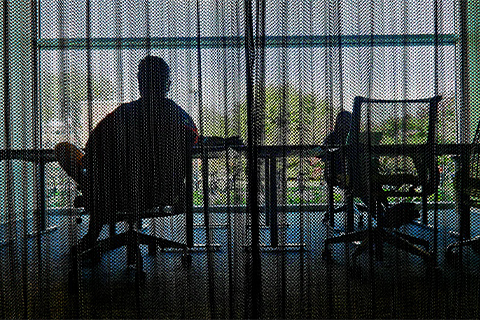
Michigan State University (MSU) has partnered with Podium Education to provide its students access to the Global Tech Experience (GTX), a virtual learning program designed to provide students with real-world case studies, coaching, and discussions that simulate “on-the-job” training. Participating students work on projects from a variety of global organizations alongside peers from over 70 institutions and over 40 different countries. Through hands-on learning, guidance from industry experts, frequent reflection activities, and engaging with peers from diverse cultural backgrounds, students develop important global, career-readiness skills.
Students who choose to take part will earn six (6) graded MSU credits (two three-credit courses) and three digital badges from Podium. In addition to the work built-in to the courses, students will have access to additional services, including access to Untapped, Global CareerBase and Upwork. These tools build upon MSU’s already excellent Career Services Network resources to assist you in your growth as a professional.
Students can participate in the program during fall, spring, and summer semesters. Earn credits and credentials that will jumpstart your future. Learn more and reserve a spot today by contacting the GTX team, or speak with the MSU staff by emailing globaltech@msu.edu.
Experiential Track Options
With more companies shifting to online operations, digital marketers are positioned to set the tone for how we shop, connect and share ideas across the globe. Companies everywhere need marketers who understand cultural and geographic nuances and can collaborate across differences.
Students in this program track will learn how to use Shopify, the leading global ecommerce platform for small businesses, and build their own online store. Then, students learn how to acquire customers for their online store using key social media channels and search tools such as Google, TikTok, and Instagram. Students can expect to work hands-on with companies like Bumble, Zillow and Noz Sunscreen as they learn cultural and geographical best practices related to ecommerce.
Data is a key component of the modern economy and is dominating decision-making across all sectors. Companies, governments, and non-profits need data analysts who understand cultural and geographic nuances and can collaborate across differences.
Students in this program track will develop the ability to collaborate on technical challenges in a diverse business environment and grapple with real-world case studies featuring international organizations. Students will analyze data using Excel, and present culturally relevant visual data stories using Tableau. Students can expect to work on hands-on projects from companies like Netflix, Spotify and the United Nations as they learn to apply skills to real-world situations.
With big data sets being gathered across industries, data analysts possessing coding skills commonly used for analytics are in higher demand than ever before. Companies everywhere need data professionals who understand cultural and geographic nuances and can collaborate across differences.
Students in this program track will learn how to wrangle, visualize and analyze massive data sets using SQL and Python. To further develop their ability to succeed in the workforce, students will take part in group activities requiring collaboration and communication, and experience realistic virtual reality simulations of workplace interactions. Students can expect to work on hands-on projects from organizations like MOMA, Doordash, and YouTube as they learn to apply both technical and intercultural skills and articulate their learnings to a potential employer.
With increased aspects of daily life shifting online, web developers are in increasingly high demand. Companies everywhere need developers who understand cultural and geographic nuances and can collaborate across differences.
Students in this program track will learn how to build dynamic mobile and web experiences for users from around the world, using industry-standard best practices. Students also learn cultural web application nuances relevant to developing web applications that are welcomed and accessible by all users. Students participate in group activities requiring collaboration and communication, engage in frequent personal reflection, and complete realistic virtual reality simulations of workplace interactions. Students can expect to work hands-on on projects from companies like Uber, Google, and 1800-flowers as they learn to apply technical and intercultural skills to various situations and articulate skills to a potential employer.